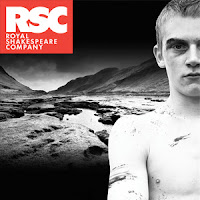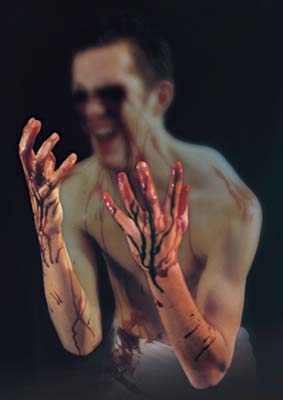I first appreciated Junction 25 during their astonishing examination of family ties, From Where I Am Standing. While it might not have been as blisteringly vicious as last year’s Teenage Riot—in fact, it is a rather gentle, respectful piece—it revealed a Scottish company that were taking on the lessons of the Europeans who had been visiting Tramway for the past twenty years. Devised work that came directly from the lives of the performers, confident episodes performed by accomplished actors, an atmosphere of fun and complicity between the stage and the audience: it almost seemed irrelevant that J25 are a youth theatre.
Jess Thorpe (Artistic Director)
We started Junction 25 as a response to our feeling about the need to represent the voices of young people in contemporary performance. There seemed to be a lot of theatre schools working with traditional forms but little that saw young people speaking for themselves about their own experience in their own time. Then it was about delivering this work within a 'professional' context so that an audience might be able to view it as more than a participatory experience but also as a valid piece of art in its own right.
At first it was a challenge for us to find ways to communicate a new style of working for young people. It wasn't about changing the ideas or making the work 'less rigorous' or 'less difficult' it was about finding the right way to have conversations about experimental art with people who had never been seen it before. It was exciting to introduce new methods as young people often think about theatre in one way - as being a character or 'acting' because it is the dominant form and most of their experience. It was hard for some of them to imagine what was interesting about 'just being themselves' but in time this has changed and the culture of the group really helps to support new members as they discover the way we work together.
The style of working has clear similarities with the work of Glas(s) Performance: in some ways is inevitable but it is important to recognize the distinction - Junction 25 is our collaboration with young people. It does not mean 'Jess and Tashi'. It means what we do together - a collective. It means young people trying out new ideas and working together to explore the world in which they experience. They need to and can speak for themselves.
Megan (Performer)
I like how the how the show explores lots of different types of love, its not just about the typical romantic love. The devising process of the show was challenging but once we gained momentum the show came together in no time. Its such a personal show, its defiantly one of my favourites because it is all about us, our experiences. One of the challenges was trying to connect all the different stories together and make sure it was fluid, but thankfully we pulled it together, it makes me proud to be in it.
Scott Ramage (Performer)
When the concept of the show was first announced as love I was a little unsure what to expect, although when we got started I knew straight away it wasn't just going to be about romantic love. I was surprised as one of the first things we decided on was the name but when Nathan came out with "I Hope My Heart Goes First" quite a few people actually said "That's it". Throughout the coming months we had a large sheet of paper spread across a wall and we all wrote ideas and feelings on it for the performance, none refused or removed. This was then the catalyst for more activities breeding more ideas and eventually performances.
The activities were usually either performance or question based but we still had ideas out of games that we played. By the end we had a show.















%20Brian%20Ferguson%20and%20cast.%20Photo%20Richard%20Campbell%20(229x300).jpg)










